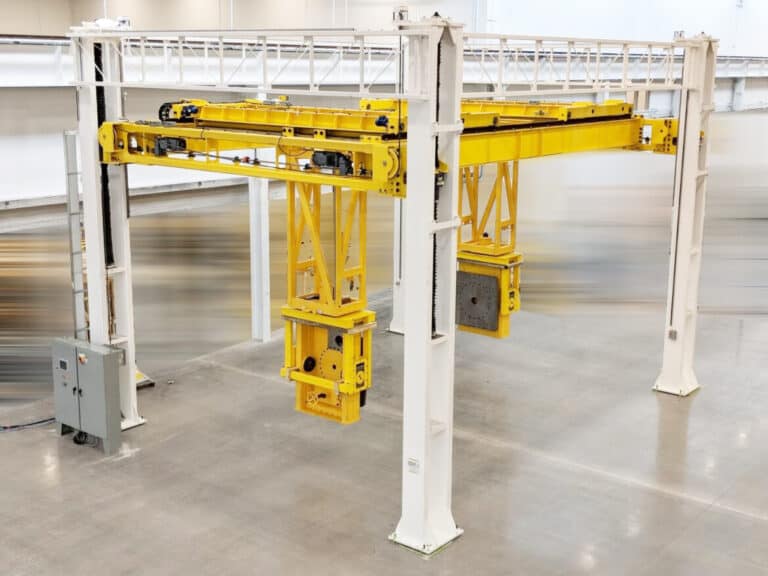Understanding the Inclusions of moving and Freight Forwarding worldwide of Worldwide and domestic Delivery
Guiding with the complexities of moving and Freight forwarding can be challenging. Both processes involve distinct procedures and needs that are critical for successful transportation. Recognizing the distinctions in logistics, documentation, and threat monitoring is vital for individuals and organizations alike. This expertise can substantially affect the efficiency and safety and security of shipments. However, lots of are unaware of the details elements that influence the total experience and end results. What elements should one take into consideration to ensure a smooth transition?
The Fundamentals of moving and Freight Forwarding
moving and Freight forwarding are basic components of the global logistics sector. They assist in the transfer of goods and individual belongings throughout residential and worldwide boundaries. moving mostly involves the relocation of households or people, incorporating commercial and property demands. It typically includes packing, loading, carrying, and unloading things at the destination. In contrast, Freight forwarding is concentrated on the delivery of items, typically wholesale, making use of various transportation modes, such as sea, land.freight, or air forwarders work as middlemans, coordinating logistics to ensure prompt distribution while steering via complex regulations and customizeds procedures. Both processes need cautious preparation, company, and interaction to ensure effectiveness and lessen disturbances. Recognizing these principles is essential for any person entailed in logistics, as they prepared for advanced facets of delivery and transportation administration.
Key Components of Freight Forwarding Services
Freight forwarding services incorporate numerous critical parts that ensure smooth transportation of goods. Key responsibilities of Freight forwarders consist of taking care of logistics, collaborating shipments, and dealing with customizeds clearance. Additionally, recognizing crucial delivery paperwork is crucial for compliance and efficient activity of freight.
Freight Forwarder Responsibilities
A reliable Freight forwarder plays a vital role in working with the transport of goods, making certain that deliveries are dealt with efficiently and in compliance with regulations. Their duties include various vital tasks, consisting of choosing perfect transport paths, negotiating Freight prices, and managing logistics. They function as intermediaries in between shippers and service providers, guaranteeing that cargo is correctly packaged and identified for safe transit. In addition, Freight forwarders track shipments, giving updates to clients concerning the status and anticipated distribution times. They likewise analyze and manage dangers related to transportation, advising insurance choices as required. By helping with interaction and documents, Freight forwarders improve the delivery procedure, reducing prospective hold-ups and enhancing total supply chain efficiency.
Shipping Paperwork Basics

Recognizing Custom-mades Clearance and Paperwork
Accurate documents is vital in the personalizeds clearance process, as it guarantees conformity with various laws. An introduction of customizeds regulations highlights the intricacies faced by carriers and Freight forwarders. Common clearance obstacles can significantly influence shipment timelines and prices, making understanding this element important for reliable logistics.
Significance of Accurate Documents
Steering via the complexities of global shipping calls for a keen understanding of customs clearance and the essential function of documentation. Accurate paperwork is important for ensuring that deliveries adhere to regulations and reach their locations right away. Effectively prepared records, consisting of expenses of lading, business billings, and packing listings, facilitate smooth communications with customs authorities. Mistakes can lead to shipment hold-ups, fines, or also confiscation of goods. Furthermore, extensive documentation aids in monitoring shipments and resolving disagreements. Businesses engaged in moving and Freight forwarding must prioritize thorough documents practices to navigate the complex landscape of international shipping effectively. This diligence not just improves operations but additionally improves consumer satisfaction by making sure prompt distribution.
Customs Rules Overview
Steering custom-mades policies is a crucial aspect of global profession that directly influences the success of moving and Freight forwarding procedures. Reliable customizeds clearance needs an understanding of different policies, consisting of tariffs, responsibilities, and import/export constraints. Exact paperwork is important, as it assures conformity with lawful needs and facilitates the effective movement of items throughout borders. Trick papers usually consist of commercial billings, packaging lists, and bills of lading, which supply thorough info concerning the shipment. Furthermore, personalizeds brokers play an important function in guiding intricate guidelines, serving as intermediaries between shippers and customs authorities. By keeping thorough knowledge of customs processes, businesses you can try these out can considerably minimize hold-ups and lessen prices connected with global shipping.
Common Clearance Difficulties
Countless obstacles can occur during the personalizeds clearance procedure, frequently making complex the activity of products throughout borders. One significant problem wants documents, which can result in hold-ups and charges. Importers and exporters have to guarantee all called for paperwork, such as invoices, packing lists, and certifications of beginning, is full and exact. In addition, inconsistencies in appraisal can set off examination from customizeds authorities, resulting in added responsibilities or examinations. Language obstacles may additionally pose difficulties, as miscommunication can cause misconceptions pertaining to policies. In addition, modifications in personalizeds laws can create complication, necessitating constant watchfulness by carriers. Ultimately, getting over these clearance tests needs complete preparation and a clear understanding of customizeds needs to facilitate smooth worldwide purchases.
Product Packaging and Identifying Demands
Although usually ignored, packaging and labeling demands play an important function in the shipping process, making sure that products are shielded and quickly identifiable throughout their trip. Proper product packaging safeguards products from damages during transit, while likewise assisting in effective handling and storage. Using appropriate materials, such as bubble cover, foam, or strong boxes, can prevent damage and loss.Labeling is similarly crucial. Clear and accurate labels communicate crucial information, including the location, handling directions, and materials. Labels have to adhere to regulations specific to international and domestic delivery, which might include dangerous products identification or custom-mades declarations.Moreover, standard labeling practices simplify the tracking procedure and boost overall logistics efficiency. By sticking to packaging and labeling needs, services decrease the danger of hold-ups, damages, or misdelivery. Inevitably, these techniques add substantially to the success of moving and Freight forwarding procedures, making certain a smooth shipping experience for all celebrations involved
Tracking Deliveries: Significance and Methods
Reliable product packaging and labeling established the structure for successful shipment management, but tracking shipments is just as important in the shipping process. Delivery tracking gives real-time visibility, which aids consumers and companies keep track of the progression of their items. This openness boosts client satisfaction, considering that clients can stay notified concerning delivery timelines and any possible delays.Several techniques facilitate effective tracking. Barcode scanning is a common approach, using one-of-a-kind identifiers to monitor bundles throughout their trip. In addition, general practitioner technology enables precise place monitoring, permitting timely updates and enhanced logistics management. Several shipping companies now supply electronic platforms and navigate to these guys mobile applications that give users with simple accessibility to tracking information.The importance of delivery tracking can not be overstated; it reduces the threat of shed or harmed goods, improves operational effectiveness, and promotes count on between recipients and shippers. Consequently, incorporating effective tracking approaches is important for successful residential and global delivery operations.
Insurance coverage Options for Your Product
Safeguarding insurance coverage for products in transit is an essential factor to consider for individuals and organizations alike. Insurance coverage alternatives differ based upon the sort of delivery, worth of items, and particular dangers involved. Usual kinds include copyright liability, which covers loss or damage while en route, and full-value insurance coverage, giving substantial coverage for the overall value of the goods.Shippers might likewise consider aquatic insurance for international deliveries, safeguarding against dangers connected with sea transport. It is important to assess the specific requirements of the shipment and examine the terms of any kind of policy.Furthermore, comprehending exemptions and constraints is crucial to prevent potential voids in insurance coverage. Shippers must engage with insurance coverage experts to explore tailored services that fit their distinct scenarios. Eventually, purchasing the ideal insurance policy can reduce financial threats and give assurance during the delivery procedure.
Choosing the Right moving and Freight Forwarding Service
When selecting a relocating and Freight forwarding service, it is important for individuals and services to very carefully assess their specific requirements and priorities. Variables such as the volume of products, destination, and timeline play a substantial function in this decision-making process. Investigating various companies is a good idea; contrasting their solutions, rates, and customer testimonials can expose important insights.Additionally, it is needed to consider the experience and proficiency of the service company in managing certain types of cargo, especially for international shipments that may include personalizeds clearance. Openness in prices, including any kind of surprise charges, should also be scrutinized.Furthermore, evaluating the degree of customer support offered is crucial, as prompt interaction can mitigate issues throughout transit (overseas movers). Finally, verifying the accessibility of insurance coverage choices assures that goods are protected throughout the delivery procedure. By taking these organizations, actions and people can make informed selections that line up with their logistics requirements
Often Asked Concerns
What Kinds Of Item Can Be Shipped Internationally?

How Do Delivery Costs Range Different Service Providers?
Shipping costs differ greatly between carriers due to factors such as solution speed, cargo type, range, and extra solutions provided. Each provider's prices design mirrors these variables, affecting total shipping expenses for clients.
Can I Ship Hazardous Products or Perishables?
Delivering unsafe products and perishables is subject to rigorous laws. Service providers often need specific packaging, labeling, and documentation. Shippers have to guarantee conformity with global and regional legislations to avoid charges and ensure secure transportation.
What Should I Do if My Shipment Is Delayed?
When encountered with a shipment delay, one need to initially contact the provider for updates. Then, examine any kind of notifications received, examine alternative solutions, and maintain all events notified concerning the situation to minimize interruptions.
Exist Weight Boundary for Shipping Containers?
Weight limitations for delivery containers vary depending upon aspects like container size and shipping laws. Generally, conventional containers have an optimum gross weight of around 30,000 to 32,000 kilos to assure risk-free transportation and handling. In comparison, Freight forwarding is concentrated on the delivery of items, commonly in mass, using numerous transportation settings, such as air, land.freight, or sea forwarders act as intermediaries, collaborating logistics to ensure timely distribution while maneuvering with complicated laws and custom-mades treatments. Secret obligations of Freight forwarders consist of handling logistics, coordinating shipments, and dealing with customizeds clearance. A trusted Freight forwarder plays a necessary function in coordinating the transport of goods, making sure that shipments are managed successfully and in compliance with laws. Effective product packaging and labeling set the foundation for effective more shipment management, yet tracking shipments is equally important in the shipping process. Several delivery companies now use electronic platforms and mobile applications that give users with simple accessibility to tracking information.The importance of delivery monitoring can not be overstated; it reduces the danger of shed or damaged products, improves functional performance, and cultivates trust between carriers and recipients.